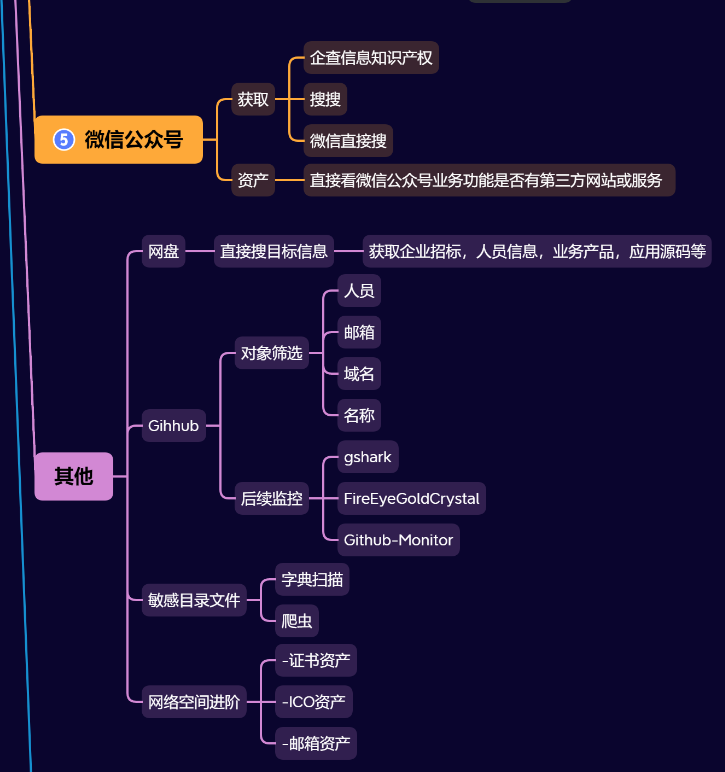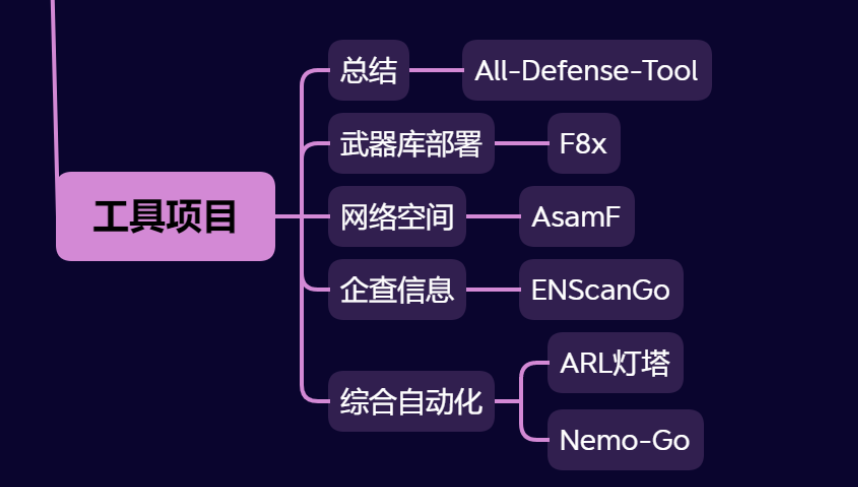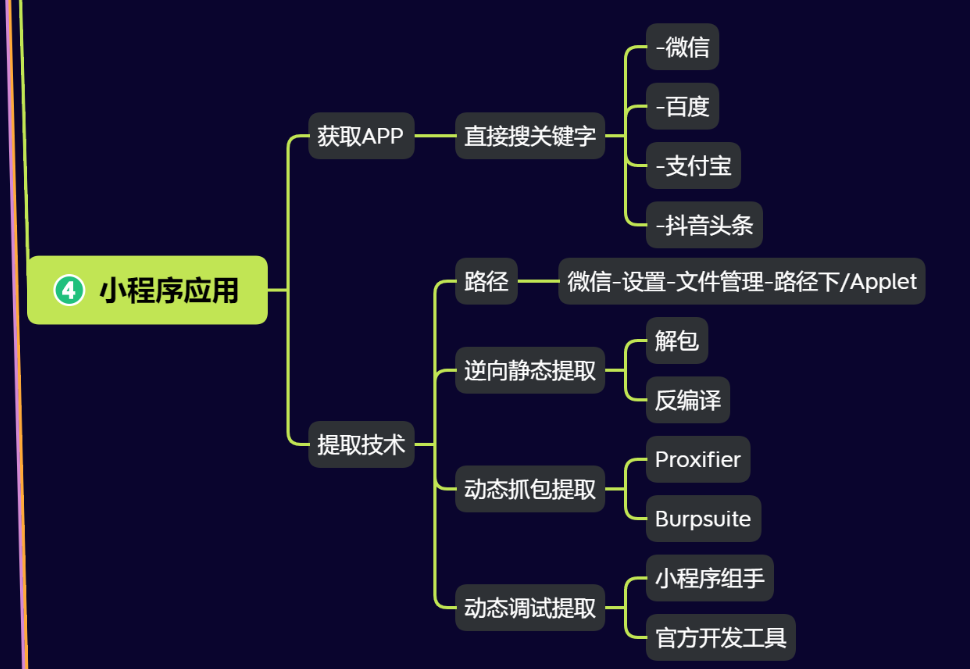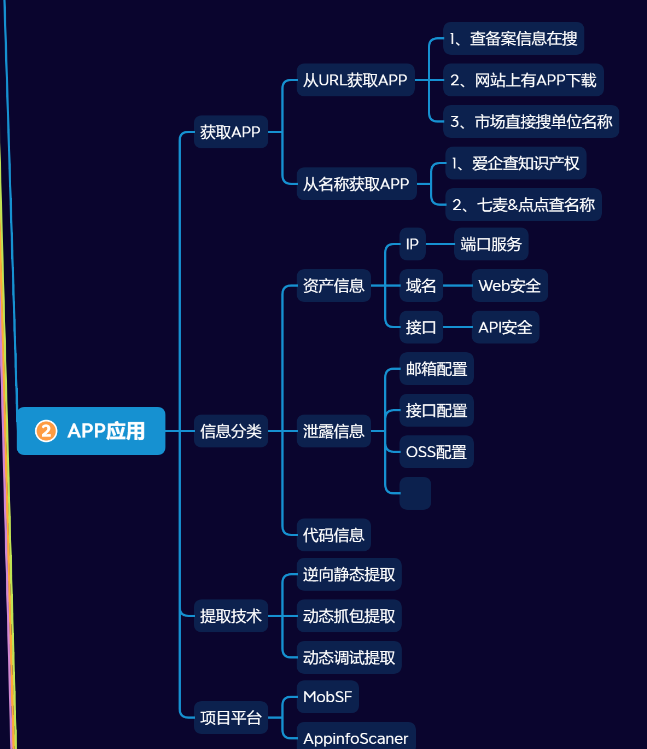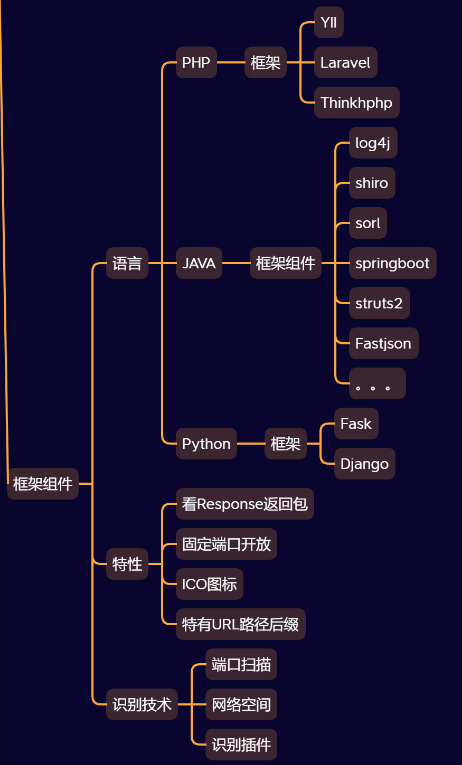spring cloud 1
1服务的注册与发现框架
eureka netflex
consul
nacos
dubbo
2微服务调用框架
ribbon
feign
3熔断器框架
hystrix
4网关
gateway
zuul
5配置中心
config
6服务总线
bus
1初识 Spring Cloud-面试
1.1微服务架构

①”微服务”一词源于 Martin Fowler的名为 Microservices的博文,可以在他的官方博客上找到http://martinfowler.com/articles/microservices.html
②微服务是系统架构上的一种设计风格,它的主旨是将一个原本独立的系统拆分成多个小型服务,这些小型服务都在各自独立的进程中运行,服务之间一般通过 HTTP 的 RESTfuL API 进行通信协作。
③微服务是系统架构上的一种设计风格,它的主旨是将一个原本独立的系统拆分成多个小型服务,这些小型服务都在各自独立的进程中运行,服务之间一般通过 HTTP 的 RESTfuL API 进行通信协作。
④由于有了轻量级的通信协作基础,所以这些微服务可以使用不同的语言来编写。

rest常见的几种传输方式
get ip:port/order/query?orderId=1
post ip:port/order/add {}
put ip:port/user/update {}
delete ip:port/user?userId=1
计算机组成原理
网络 7层架构 http3次握手4次挥手
数据结构 mysql b+树
操作系统 linux 操作 cd mkdir touch vim
1.2走进 Spring Cloud
①Spring Cloud 是一系列框架的有序集合。
②Spring Cloud 并没有重复制造轮子,它只是将目前各家公司开发的比较成熟、经得起实际考验的服务框架组合起来。
③通过 Spring Boot 风格进行再封装屏蔽掉了复杂的配置和实现原理,最终给开发者留出了一套简单易懂、易部署和易维护的分布式系统开发工具包。
④它利用Spring Boot的开发便利性巧妙地简化了分布式系统基础设施的开发,如服务发现注册、配置中心、消息总线、负载均衡、 断路器、数据监控等,都可以用Spring Boot的开发风格做到一键启动和部署。
⑤Spring Cloud项目官方网址:https://spring.io/projects/spring-cloud
⑥Spring Cloud 版本命名方式采用了伦敦地铁站的名称,同时根据字母表的顺序来对应版本时间顺序,比如:最早的Release版本:Angel,第二个Release版本:Brixton,然后是Camden、Dalston、Edgware,Finchley,Greenwich,Hoxton。
目前最新的是Hoxton版本。

1.3Spring Cloud 与 Dubbo 对比

相同点:Spring Cloud 与 Dubbo 都是实现微服务有效的工具。
不同点:
1Dubbo 只是实现了服务治理,而 Spring Cloud 子项目分别覆盖了微服务架构下的众多部件。
2Dubbo 使用 RPC 通讯协议,Spring Cloud 使用 RESTful 完成通信,Dubbo 效率略高于 Spring Cloud。
计算机:计算机组成原理 操作系统 网络 数据结构
http: 三次握手 四次挥手 请求头
小结
• 微服务就是将项目的各个模块拆分为可独立运行、部署、测试的架构设计风格。
• Spring 公司将其他公司中微服务架构常用的组件整合起来,并使用 SpringBoot 简化其开发、配置。称为 Spring Cloud
• Spring Cloud 与 Dubbo都是实现微服务有效的工具。Dubbo 性能更好,而 Spring Cloud 功能更全面。
2Spring Cloud 服务治理
2.1Eureka
概念:
• Eureka 是 Netflix 公司开源的一个服务注册与发现的组件 。
• Eureka 和其他 Netflix 公司的服务组件(例如负载均衡、熔断器、网关等) 一起,被 Spring Cloud 社区整合为Spring-Cloud-Netflix 模块。
• Eureka 包含两个组件:Eureka Server (注册中心) 和 Eureka Client (服务提供者、服务消费者)。

操作:

一、搭建 Provider 和 Consumer 服务。
1父工程 spring-cloud-parent
pom.xml
1
2
3
4
5
6
7
8
9
10
11
12
13
14
15
16
17
18
19
20
21
22
23
24
25
26
27
28
29
30
31
32
| <?xml version="1.0" encoding="UTF-8"?>
<project xmlns="http://maven.apache.org/POM/4.0.0"
xmlns:xsi="http://www.w3.org/2001/XMLSchema-instance"
xsi:schemaLocation="http://maven.apache.org/POM/4.0.0 http://maven.apache.org/xsd/maven-4.0.0.xsd">
<modelVersion>4.0.0</modelVersion>
<groupId>com.itheima</groupId>
<artifactId>spring-cloud-parent</artifactId>
<packaging>pom</packaging>
<version>1.0-SNAPSHOT</version>
<modules>
<module>eureka-provider</module>
<module>eureka-consumer</module>
</modules>
<parent>
<groupId>org.springframework.boot</groupId>
<artifactId>spring-boot-starter-parent</artifactId>
<version>2.1.0.RELEASE</version>
<relativePath/>
</parent>
<properties>
<project.build.sourceEncoding>UTF-8</project.build.sourceEncoding>
<project.reporting.outputEncoding>UTF-8</project.reporting.outputEncoding>
<java.version>1.8</java.version>
</properties>
</project>
|
2生产者 eureka-provider
pom.xml
1
2
3
4
5
6
7
8
9
10
11
12
13
14
15
16
17
18
19
20
| <?xml version="1.0" encoding="UTF-8"?>
<project xmlns="http://maven.apache.org/POM/4.0.0"
xmlns:xsi="http://www.w3.org/2001/XMLSchema-instance"
xsi:schemaLocation="http://maven.apache.org/POM/4.0.0 http://maven.apache.org/xsd/maven-4.0.0.xsd">
<parent>
<artifactId>spring-cloud-parent</artifactId>
<groupId>com.itheima</groupId>
<version>1.0-SNAPSHOT</version>
</parent>
<modelVersion>4.0.0</modelVersion>
<artifactId>eureka-provider</artifactId>
<dependencies>
<dependency>
<groupId>org.springframework.boot</groupId>
<artifactId>spring-boot-starter-web</artifactId>
</dependency>
</dependencies>
</project>
|
ProviderApp
1
2
3
4
5
6
7
8
9
10
11
12
13
14
| package com.itheima.provider;
import org.springframework.boot.SpringApplication;
import org.springframework.boot.autoconfigure.SpringBootApplication;
@SpringBootApplication
public class ProviderApp {
public static void main(String[] args) {
SpringApplication.run(ProviderApp.class,args);
}
}
|
Goods
1
2
3
4
5
6
7
8
9
10
11
12
13
14
15
16
17
18
19
20
21
22
23
24
25
26
27
28
29
30
31
32
33
34
35
36
37
38
39
40
41
42
43
44
45
46
47
48
49
50
51
52
53
54
| package com.itheima.provider.domain;
public class Goods {
private int id;
private String title;
private double price;
private int count;
public Goods() {
}
public Goods(int id, String title, double price, int count) {
this.id = id;
this.title = title;
this.price = price;
this.count = count;
}
public int getId() {
return id;
}
public void setId(int id) {
this.id = id;
}
public String getTitle() {
return title;
}
public void setTitle(String title) {
this.title = title;
}
public double getPrice() {
return price;
}
public void setPrice(double price) {
this.price = price;
}
public int getCount() {
return count;
}
public void setCount(int count) {
this.count = count;
}
}
|
GoodsController
1
2
3
4
5
6
7
8
9
10
11
12
13
14
15
16
17
18
19
20
21
22
23
24
25
26
27
28
29
| package com.itheima.provider.controller;
import com.itheima.provider.domain.Goods;
import com.itheima.provider.service.GoodsService;
import org.springframework.beans.factory.annotation.Autowired;
import org.springframework.web.bind.annotation.GetMapping;
import org.springframework.web.bind.annotation.PathVariable;
import org.springframework.web.bind.annotation.RequestMapping;
import org.springframework.web.bind.annotation.RestController;
@RestController
@RequestMapping("/goods")
public class GoodsController {
@Autowired
private GoodsService goodsService;
@GetMapping("/findOne/{id}")
public Goods findOne(@PathVariable("id") int id){
Goods goods = goodsService.findOne(id);
return goods;
}
}
|
GoodsService
1
2
3
4
5
6
7
8
9
10
11
12
13
14
15
16
17
18
19
20
21
22
23
24
25
26
| package com.itheima.provider.service;
import com.itheima.provider.dao.GoodsDao;
import com.itheima.provider.domain.Goods;
import org.springframework.beans.factory.annotation.Autowired;
import org.springframework.stereotype.Service;
@Service
public class GoodsService {
@Autowired
private GoodsDao goodsDao;
public Goods findOne(int id){
return goodsDao.findOne(id);
}
}
|
GoodsDao
1
2
3
4
5
6
7
8
9
10
11
12
13
14
15
16
17
18
19
| package com.itheima.provider.dao;
import com.itheima.provider.domain.Goods;
import org.springframework.stereotype.Repository;
import javax.validation.ReportAsSingleViolation;
@Repository
public class GoodsDao {
public Goods findOne(int id){
return new Goods(1,"华为手机",3999,10000);
}
}
|
application.yml
测试:
ip:port/goods?id=1 /findById @RequestParam(“id”)
ip:port/goods/1 /findById/{id} @PathVariable(“id”)
3消费者 eureka-consumer
pom.xml
1
2
3
4
5
6
7
8
9
10
11
12
13
14
15
16
17
18
19
20
21
22
23
24
| <?xml version="1.0" encoding="UTF-8"?>
<project xmlns="http://maven.apache.org/POM/4.0.0"
xmlns:xsi="http://www.w3.org/2001/XMLSchema-instance"
xsi:schemaLocation="http://maven.apache.org/POM/4.0.0 http://maven.apache.org/xsd/maven-4.0.0.xsd">
<parent>
<artifactId>spring-cloud-parent</artifactId>
<groupId>com.itheima</groupId>
<version>1.0-SNAPSHOT</version>
</parent>
<modelVersion>4.0.0</modelVersion>
<artifactId>eureka-consumer</artifactId>
<dependencies>
<dependency>
<groupId>org.springframework.boot</groupId>
<artifactId>spring-boot-starter-web</artifactId>
</dependency>
</dependencies>
</project>
|
Goods
1
2
3
4
5
6
7
8
9
10
11
12
13
14
15
16
17
18
19
20
21
22
23
24
25
26
27
28
29
30
31
32
33
34
35
36
37
38
39
40
41
42
43
44
45
46
47
48
49
50
51
52
53
54
| package com.itheima.consumer.domain;
public class Goods {
private int id;
private String title;
private double price;
private int count;
public Goods() {
}
public Goods(int id, String title, double price, int count) {
this.id = id;
this.title = title;
this.price = price;
this.count = count;
}
public int getId() {
return id;
}
public void setId(int id) {
this.id = id;
}
public String getTitle() {
return title;
}
public void setTitle(String title) {
this.title = title;
}
public double getPrice() {
return price;
}
public void setPrice(double price) {
this.price = price;
}
public int getCount() {
return count;
}
public void setCount(int count) {
this.count = count;
}
}
|
OrderController
1
2
3
4
5
6
7
8
9
10
11
12
13
14
15
16
17
18
19
20
21
22
23
24
25
26
27
28
| package com.itheima.consumer.controller;
import com.itheima.consumer.domain.Goods;
import org.springframework.beans.factory.annotation.Autowired;
import org.springframework.web.bind.annotation.GetMapping;
import org.springframework.web.bind.annotation.PathVariable;
import org.springframework.web.bind.annotation.RequestMapping;
import org.springframework.web.bind.annotation.RestController;
@RestController
@RequestMapping("/order")
public class OrderController {
@GetMapping("/goods/{id}")
public Goods findGoodsById(@PathVariable("id") int id){
System.out.println("findGoodsById..."+id);
return null;
}
}
|
application.yml
测试:
二、使用 RestTemplate 完成远程调用。
- Spring提供的一种简单便捷的模板类,用于在 java 代码里访问 restful 服务。
- 其功能与 HttpClient 类似,但是 RestTemplate 实现更优雅,使用更方便。
consumer工程中
RestTemplateConfig
1
2
3
4
5
6
7
8
9
10
11
12
13
14
15
16
| package com.itheima.consumer.config;
import org.springframework.context.annotation.Bean;
import org.springframework.context.annotation.Configuration;
import org.springframework.web.client.RestTemplate;
@Configuration
public class RestTemplateConfig {
@Bean
public RestTemplate restTemplate(){
return new RestTemplate();
}
}
|
OrderController
1
2
3
4
5
6
7
8
9
10
11
12
13
14
15
16
17
18
19
20
21
22
23
24
25
26
27
28
29
30
31
32
33
34
35
36
37
38
39
40
41
42
43
| package com.itheima.consumer.controller;
import com.itheima.consumer.domain.Goods;
import org.springframework.beans.factory.annotation.Autowired;
import org.springframework.web.bind.annotation.GetMapping;
import org.springframework.web.bind.annotation.PathVariable;
import org.springframework.web.bind.annotation.RequestMapping;
import org.springframework.web.bind.annotation.RestController;
import org.springframework.web.client.RestTemplate;
@RestController
@RequestMapping("/order")
public class OrderController {
@Autowired
private RestTemplate restTemplate;
@GetMapping("/goods/{id}")
public Goods findGoodsById(@PathVariable("id") int id){
System.out.println("findGoodsById..."+id);
String url = "http://localhost:8000/goods/findOne/"+id;
Goods goods = restTemplate.getForObject(url, Goods.class);
return goods;
}
}
|
测试:
三、搭建 Eureka Server 服务。
① 创建 eureka-server 模块
② 引入 SpringCloud 和 euraka-server 相关依赖
③ 完成 Eureka Server 相关配置
④ 启动该模块
父工程 pom
1
2
3
4
5
6
7
8
9
10
11
12
13
14
15
16
17
18
19
20
21
22
23
24
25
26
27
28
29
30
31
32
33
34
35
36
37
38
39
40
41
42
43
44
45
46
47
48
| <?xml version="1.0" encoding="UTF-8"?>
<project xmlns="http://maven.apache.org/POM/4.0.0"
xmlns:xsi="http://www.w3.org/2001/XMLSchema-instance"
xsi:schemaLocation="http://maven.apache.org/POM/4.0.0 http://maven.apache.org/xsd/maven-4.0.0.xsd">
<modelVersion>4.0.0</modelVersion>
<groupId>com.itheima</groupId>
<artifactId>spring-cloud-parent</artifactId>
<packaging>pom</packaging>
<version>1.0-SNAPSHOT</version>
<modules>
<module>eureka-provider</module>
<module>eureka-consumer</module>
<module>eureka-server</module>
</modules>
<parent>
<groupId>org.springframework.boot</groupId>
<artifactId>spring-boot-starter-parent</artifactId>
<version>2.1.0.RELEASE</version>
<relativePath/>
</parent>
<properties>
<project.build.sourceEncoding>UTF-8</project.build.sourceEncoding>
<project.reporting.outputEncoding>UTF-8</project.reporting.outputEncoding>
<java.version>1.8</java.version>
<spring-cloud.version>Greenwich.RELEASE</spring-cloud.version>
</properties>
<dependencyManagement>
<dependencies>
<dependency>
<groupId>org.springframework.cloud</groupId>
<artifactId>spring-cloud-dependencies</artifactId>
<version>${spring-cloud.version}</version>
<type>pom</type>
<scope>import</scope>
</dependency>
</dependencies>
</dependencyManagement>
</project>
|
eureka-server工程
pom
1
2
3
4
5
6
7
8
9
10
11
12
13
14
15
16
17
18
19
20
21
22
23
24
25
26
27
28
29
30
31
| <?xml version="1.0" encoding="UTF-8"?>
<project xmlns="http://maven.apache.org/POM/4.0.0"
xmlns:xsi="http://www.w3.org/2001/XMLSchema-instance"
xsi:schemaLocation="http://maven.apache.org/POM/4.0.0 http://maven.apache.org/xsd/maven-4.0.0.xsd">
<parent>
<artifactId>spring-cloud-parent</artifactId>
<groupId>com.itheima</groupId>
<version>1.0-SNAPSHOT</version>
</parent>
<modelVersion>4.0.0</modelVersion>
<artifactId>eureka-server</artifactId>
<dependencies>
<dependency>
<groupId>org.springframework.boot</groupId>
<artifactId>spring-boot-starter-web</artifactId>
</dependency>
<dependency>
<groupId>org.springframework.cloud</groupId>
<artifactId>spring-cloud-starter-netflix-eureka-server</artifactId>
</dependency>
</dependencies>
</project>
|
EurekaApp
1
2
3
4
5
6
7
8
9
10
11
12
13
14
15
| package com.itheima.eureka;
import org.springframework.boot.SpringApplication;
import org.springframework.boot.autoconfigure.SpringBootApplication;
import org.springframework.cloud.netflix.eureka.server.EnableEurekaServer;
@SpringBootApplication
@EnableEurekaServer
public class EurekaApp {
public static void main(String[] args) {
SpringApplication.run(EurekaApp.class,args);
}
}
|
application.yml
1
2
3
4
5
6
7
8
9
10
11
12
13
14
15
16
17
18
19
20
| server:
port: 8761
eureka:
instance:
hostname: localhost
client:
service-url:
defaultZone: http://${eureka.instance.hostname}:${server.port}/eureka
register-with-eureka: false
fetch-registry: false
|
**测试: ** 访问 localhost:8761

四、改造 Provider 和 Consumer 称为 Eureka Client。
① 引 eureka-client 相关依赖
② 完成 eureka client 相关配置
③ 启动 测试
Provider工程
pom
1
2
3
4
5
|
<dependency>
<groupId>org.springframework.cloud</groupId>
<artifactId>spring-cloud-starter-netflix-eureka-client</artifactId>
</dependency>
|
ProviderApp
application.yml
1
2
3
4
5
6
7
8
9
10
11
12
13
| server:
port: 8001
eureka:
instance:
hostname: localhost
client:
service-url:
defaultZone: http://localhost:8761/eureka
spring:
application:
name: eureka-provider
|
Consumer
pom
1
2
3
4
5
|
<dependency>
<groupId>org.springframework.cloud</groupId>
<artifactId>spring-cloud-starter-netflix-eureka-client</artifactId>
</dependency>
|
ConsumerApp
1
2
3
4
5
6
7
8
9
10
11
12
13
14
15
16
17
| package com.itheima.consumer;
import org.springframework.boot.SpringApplication;
import org.springframework.boot.autoconfigure.SpringBootApplication;
import org.springframework.cloud.client.discovery.EnableDiscoveryClient;
import org.springframework.cloud.netflix.eureka.EnableEurekaClient;
@EnableDiscoveryClient
@EnableEurekaClient
@SpringBootApplication
public class ConsumerApp {
public static void main(String[] args) {
SpringApplication.run(ConsumerApp.class,args);
}
}
|
application.yml
1
2
3
4
5
6
7
8
9
10
11
12
| server:
port: 9000
eureka:
instance:
hostname: localhost
client:
service-url:
defaultZone: http://localhost:8761/eureka
spring:
application:
name: eureka-consumer
|
五、Consumer 服务 通过从 Eureka Server 中抓取 Provider 地址,完成远程调用。
Consumer
OrderController
1
2
3
4
5
6
7
8
9
10
11
12
13
14
15
16
17
18
19
20
21
22
23
24
25
26
27
28
29
30
31
32
33
34
35
36
37
38
39
40
41
42
43
44
45
46
47
48
49
50
51
52
53
54
55
56
57
58
59
60
61
62
63
64
65
66
67
68
69
70
71
72
73
74
| package com.itheima.consumer.controller;
import com.itheima.consumer.domain.Goods;
import org.springframework.beans.factory.annotation.Autowired;
import org.springframework.cloud.client.ServiceInstance;
import org.springframework.cloud.client.discovery.DiscoveryClient;
import org.springframework.web.bind.annotation.GetMapping;
import org.springframework.web.bind.annotation.PathVariable;
import org.springframework.web.bind.annotation.RequestMapping;
import org.springframework.web.bind.annotation.RestController;
import org.springframework.web.client.RestTemplate;
import java.util.List;
@RestController
@RequestMapping("/order")
public class OrderController {
@Autowired
private RestTemplate restTemplate;
@Autowired
private DiscoveryClient discoveryClient;
@GetMapping("/goods/{id}")
public Goods findGoodsById(@PathVariable("id") int id){
System.out.println("findGoodsById..."+id);
List<ServiceInstance> instances = discoveryClient.getInstances("EUREKA-PROVIDER");
if(instances == null || instances.size() == 0){
return null;
}
ServiceInstance instance = instances.get(0);
String host = instance.getHost();
int port = instance.getPort();
System.out.println(host);
System.out.println(port);
String url = "http://"+host+":"+port+"/goods/findOne/"+id;
Goods goods = restTemplate.getForObject(url, Goods.class);
return goods;
}
}
|
六、Euraka配置详解
Eureka包含四个部分的配置
- instance:当前Eureka Instance实例信息配置
- client:Eureka Client客户端特性配置
- server:Eureka Server注册中心特性配置
- dashboard:Eureka Server注册中心仪表盘配置
1、Eureka Instance实例信息配置
1
2
3
4
5
6
7
8
| eureka:
instance:
hostname: localhost
prefer-ip-address:
ip-address:
instance-id:
lease-renewal-interval-in-seconds: 30
lease-expiration-duration-in-seconds: 90
|
Eureka Instance的配置信息全部保存在org.springframework.cloud.netflix.eureka.EurekaInstanceConfigBean配置类里,实际上它是com.netflix.appinfo.EurekaInstanceConfig的实现类,替代了netflix的com.netflix.appinfo.CloudInstanceConfig的默认实现。
Eureka Instance的配置信息全部以eureka.instance.xxx的格式配置。
配置列表
应用名,首先获取spring.application.name的值,如果取值为空,则取默认unknown。
应用组名
- instanceEnabledOnit = false
实例注册到Eureka上是,是否立刻开启通讯。有时候应用在准备好服务之前需要一些预处理。
非安全的端口
安全端口
- nonSecurePortEnabled = true
是否开启非安全端口通讯
- securePortEnabled = false
是否开启安全端口通讯
- leaseRenewalIntervalInSeconds = 30
实例续约间隔时间
- leaseExpirationDurationInSeconds = 90
实例超时时间,表示最大leaseExpirationDurationInSeconds秒后没有续约,Server就认为他不可用了,随之就会将其剔除。
- virtualHostName = unknown
虚拟主机名,首先获取spring.application.name的值,如果取值为空,则取默认unknown。
注册到eureka上的唯一实例ID,不能与相同appname的其他实例重复。
- secureVirtualHostName = unknown
安全虚拟主机名,首先获取spring.application.name的值,如果取值为空,则取默认unknown。
- metadataMap = new HashMap();
实例元数据,可以供其他实例使用。比如spring-boot-admin在监控时,获取实例的上下文和端口。
- dataCenterInfo = new MyDataCenterInfo(DataCenterInfo.Name.MyOwn);
实例部署的数据中心。如AWS、MyOwn。
实例的IP地址
- statusPageUrlPath = “/actuator/info”
实例状态页相对url
实例状态页绝对URL
实例主页相对URL
实例主页绝对URL
- healthCheckUrlUrlPath = “/actuator/health”
实例健康检查相对URL
实例健康检查绝对URL
- secureHealthCheckUrl = null
实例安全的健康检查绝对URL
配置属性的命名空间(Spring Cloud中被忽略)
主机名,不配置的时候讲根据操作系统的主机名来获取
是否优先使用IP地址作为主机名的标识
2、Eureka Client客户端特性配置
1
2
3
4
5
6
7
| eureka:
client:
service-url:
defaultZone: http://localhost:8761/eureka
register-with-eureka:
fetch-registry:
|
Eureka Client客户端特性配置是对作为Eureka客户端的特性配置,包括Eureka注册中心,本身也是一个Eureka Client。
Eureka Client特性配置全部在org.springframework.cloud.netflix.eureka.EurekaClientConfigBean中,实际上它是com.netflix.discovery.EurekaClientConfig的实现类,替代了netxflix的默认实现。
Eureka Client客户端特性配置全部以eureka.client.xxx的格式配置。
配置列表
是否启用Eureka client。
- registryFetchIntervalSeconds=30
定时从Eureka Server拉取服务注册信息的间隔时间
- instanceInfoReplicationIntervalSeconds=30
定时将实例信息(如果变化了)复制到Eureka Server的间隔时间。(InstanceInfoReplicator线程)
- initialInstanceInfoReplicationIntervalSeconds=40
首次将实例信息复制到Eureka Server的延迟时间。(InstanceInfoReplicator线程)
- eurekaServiceUrlPollIntervalSeconds=300
拉取Eureka Server地址的间隔时间(Eureka Server有可能增减)
Eureka Server的代理端口
Eureka Server的代理主机名
Eureka Server的代理用户名
Eureka Server的代理密码
- eurekaServerReadTimeoutSeconds=8
从Eureka Server读取信息的超时时间
- eurekaServerConnectTimeoutSeconds=5
连接Eureka Server的超时时间
Eureka Client第一次启动时获取服务注册信息的调用的回溯实现。Eureka Client启动时首次会检查有没有BackupRegistry的实现类,如果有实现类,则优先从这个实现类里获取服务注册信息。
- eurekaServerTotalConnections=200
Eureka client连接Eureka Server的链接总数
- eurekaServerTotalConnectionsPerHost=50
Eureka client连接单台Eureka Server的链接总数
- eurekaServerURLContext=null
当Eureka server的列表在DNS中时,Eureka Server的上下文路径。如http://xxxx/eureka。
当Eureka server的列表在DNS中时,Eureka Server的端口。
当Eureka server的列表在DNS中时,且要通过DNSName获取Eureka Server列表时,DNS名字。
实例所属区域。
- eurekaConnectionIdleTimeoutSeconds = 30
Eureka Client和Eureka Server之间的Http连接的空闲超时时间。
- heartbeatExecutorThreadPoolSize=2
心跳(续约)执行器线程池大小。
- heartbeatExecutorExponentialBackOffBound=10
心跳执行器在续约过程中超时后的再次执行续约的最大延迟倍数。默认最大延迟时间=10 * eureka.instance.leaseRenewalIntervalInSeconds
- cacheRefreshExecutorThreadPoolSize=2
cacheRefreshExecutord的线程池大小(获取注册信息)
- cacheRefreshExecutorExponentialBackOffBound=10
cacheRefreshExecutord的再次执行的最大延迟倍数。默认最大延迟时间=10 *eureka.client.registryFetchIntervalSeconds
- serviceUrl= new HashMap();serviceUrl.put(DEFAULT_ZONE, DEFAULT_URL);
Eureka Server的分区地址。默认添加了一个defualtZone。也就是最常用的配置eureka.client.service-url.defaultZone=xxx
是否注册到Eureka Server。
- preferSameZoneEureka=true
是否使用相同Zone下的Eureka server。
是否记录Eureka Server和Eureka Client之间注册信息的差异
是否开启增量同步注册信息。
- fetchRemoteRegionsRegistry=null
获取注册服务的远程地区,以逗号隔开。
- availabilityZones=new HashMap()
可用分区列表。用逗号隔开。
- filterOnlyUpInstances = true
是否只拉取UP状态的实例。
是否拉取注册信息。
- shouldUnregisterOnShutdown = true
是否在停止服务的时候向Eureka Server发起Cancel指令。
- shouldEnforceRegistrationAtInit = false
是否在初始化过程中注册服务。
3、Eureka Server注册中心端配置
1
2
3
4
5
6
7
| eureka:
server:
enable-self-preservation:
eviction-interval-timer-in-ms: 120 2月#清理间隔(单位毫秒,默认是60*1000)
instance:
lease-renewal-interval-in-seconds: 30
lease-expiration-duration-in-seconds: 90
|
Eureka Server注册中心端的配置是对注册中心的特性配置。Eureka Server的配置全部在org.springframework.cloud.netflix.eureka.server.EurekaServerConfigBean里,实际上它是com.netflix.eureka.EurekaServerConfig的实现类,替代了netflix的默认实现。
Eureka Server的配置全部以eureka.server.xxx的格式进行配置。
配置列表
- enableSelfPreservation=true
是否开启自我保护
- renewalPercentThreshold = 0.85
自我保护续约百分比阀值因子。如果实际续约数小于续约数阀值,则开启自我保护
- renewalThresholdUpdateIntervalMs = 15 * 60 * 1000
续约数阀值更新频率。
- peerEurekaNodesUpdateIntervalMs = 10 * 60 * 1000
Eureka Server节点更新频率。
- enableReplicatedRequestCompression = false
是否启用复制请求压缩。
- waitTimeInMsWhenSyncEmpty=5 * 60 * 1000
当从其他节点同步实例信息为空时等待的时间。
- peerNodeConnectTimeoutMs=200
节点间连接的超时时间。
- peerNodeReadTimeoutMs=200
节点间读取信息的超时时间。
- peerNodeTotalConnections=1000
节点间连接总数。
- peerNodeTotalConnectionsPerHost = 500;
单个节点间连接总数。
- peerNodeConnectionIdleTimeoutSeconds = 30;
节点间连接空闲超时时间。
- retentionTimeInMSInDeltaQueue = 3 * MINUTES;
增量队列的缓存时间。
- deltaRetentionTimerIntervalInMs = 30 * 1000;
清理增量队列中过期的频率。
- evictionIntervalTimerInMs = 60 * 1000;
剔除任务频率。
- responseCacheAutoExpirationInSeconds = 180;
注册列表缓存超时时间(当注册列表没有变化时)
- responseCacheUpdateIntervalMs = 30 * 1000;
注册列表缓存更新频率。
- useReadOnlyResponseCache = true;
是否开启注册列表的二级缓存。
是否为client提供增量信息。
- maxThreadsForStatusReplication = 1;
状态同步的最大线程数。
- maxElementsInStatusReplicationPool = 10000;
状态同步队列的最大容量。
- syncWhenTimestampDiffers = true;
当时间差异时是否同步。
注册信息同步重试次数。
- registrySyncRetryWaitMs = 30 * 1000;
注册信息同步重试期间的时间间隔。
- maxElementsInPeerReplicationPool = 10000;
节点间同步事件的最大容量。
- minThreadsForPeerReplication = 5;
节点间同步的最小线程数。
- maxThreadsForPeerReplication = 20;
节点间同步的最大线程数。
- maxTimeForReplication = 30000;
节点间同步的最大时间,单位为毫秒。
- disableDeltaForRemoteRegions = false;
是否启用远程区域增量。
- remoteRegionConnectTimeoutMs = 1000;
远程区域连接超时时间。
- remoteRegionReadTimeoutMs = 1000;
远程区域读取超时时间。
- remoteRegionTotalConnections = 1000;
远程区域最大连接数
- remoteRegionTotalConnectionsPerHost = 500;
远程区域单机连接数
- remoteRegionConnectionIdleTimeoutSeconds = 30;
远程区域连接空闲超时时间。
- remoteRegionRegistryFetchInterval = 30;
远程区域注册信息拉取频率。
- remoteRegionFetchThreadPoolSize = 20;
远程区域注册信息线程数。
4、Eureka Server注册中心仪表盘配置
1
2
3
4
| eureka:
dashboard:
enabled: true
path: /
|
注册中心仪表盘的配置主要是控制注册中心的可视化展示。以eureka.dashboard.xxx的格式配置。
仪表盘访问路径
是否启用仪表盘
改造 provider
1
2
3
4
5
6
7
8
9
10
11
12
13
14
15
16
17
18
| server:
port: 8001
eureka:
instance:
hostname: localhost
prefer-ip-address: true
ip-address: 127.0.0.1
instance-id: ${eureka.instance.ip-address}:${spring.application.name}:${server.port}
lease-renewal-interval-in-seconds: 3
lease-expiration-duration-in-seconds: 9
client:
service-url:
defaultZone: http://localhost:8761/eureka
spring:
application:
name: eureka-provider
|
consumer
1
2
3
4
5
6
7
8
9
10
11
12
13
14
| server:
port: 9000
eureka:
instance:
hostname: localhost
client:
service-url:
defaultZone: http://localhost:8761/eureka
spring:
application:
name: eureka-consumer
|
server
1
2
3
4
5
6
7
8
9
10
11
12
13
14
15
16
17
18
19
20
21
22
| server:
port: 8761
eureka:
instance:
hostname: localhost
client:
service-url:
defaultZone: http://${eureka.instance.hostname}:${server.port}/eureka
register-with-eureka: false
fetch-registry: false
server:
enable-self-preservation: false
eviction-interval-timer-in-ms: 3000
|
七、高可用 互相注册

准备两个Eureka Server
分别进行配置,相互注册
Eureka Client 分别注册到这两个 Eureka Server中
创建eureka-server1
1
2
3
4
5
6
7
8
9
10
11
12
13
14
15
16
17
| server:
port: 8761
eureka:
instance:
hostname: eureka-server1
client:
service-url:
defaultZone: http://eureka-server2:8762/eureka
register-with-eureka: true
fetch-registry: true
spring:
application:
name: eureka-server-ha
|
创建eureka-server2
1
2
3
4
5
6
7
8
9
10
11
12
13
14
15
16
| server:
port: 8762
eureka:
instance:
hostname: eureka-server2
client:
service-url:
defaultZone: http://eureka-server1:8761/eureka
register-with-eureka: true
fetch-registry: true
spring:
application:
name: eureka-server-ha
|
修改:C:\Windows\System32\drivers\etc\hosts
127.0.0.1 eureka-server1
127.0.0.1 eureka-server2

测试:
provider
1
2
3
4
5
6
7
8
9
10
11
12
13
14
15
16
17
18
19
| server:
port: 8001
eureka:
instance:
hostname: localhost
prefer-ip-address: true
ip-address: 127.0.0.1
instance-id: ${eureka.instance.ip-address}:${spring.application.name}:${server.port}
lease-renewal-interval-in-seconds: 3
lease-expiration-duration-in-seconds: 9
client:
service-url:
defaultZone: http://eureka-server1:8761/eureka,http://eureka-server2:8762/eureka
spring:
application:
name: eureka-provider
|
consumer
1
2
3
4
5
6
7
8
9
10
11
12
13
14
| server:
port: 9000
eureka:
instance:
hostname: localhost
client:
service-url:
defaultZone: http://eureka-server1:8761/eureka,http://eureka-server2:8762/eureka
spring:
application:
name: eureka-consumer
|
2.2Consul
2.2.1是什么:
- Consul 是由 HashiCorp 基于 GoLang语言开发的,支持多数据中心,分布式高可用的服务发布和注册服务软件。
- 用于实现分布式系统的服务发现与配置。
- 使用起来也较 为简单。具有天然可移植性(支持Linux、windows和Mac OS X);安装包仅包含一个可执行文件,方便部署 。
- 官网地址: https://www.consul.io
2.2.2怎么用:

看资料中的代码即可
1准备 cmd输入:consul.exe agent -dev

2搭建 Provider 和 Consumer 服务。
3 使用 RestTemplate 完成远程调用。
4 将Provider服务注册到Consul中。
pom
1
2
3
4
5
6
7
8
9
10
11
12
13
14
15
16
17
18
19
20
21
22
23
24
25
26
27
28
29
30
31
32
33
34
35
36
37
38
39
40
41
| <?xml version="1.0" encoding="UTF-8"?>
<project xmlns="http://maven.apache.org/POM/4.0.0"
xmlns:xsi="http://www.w3.org/2001/XMLSchema-instance"
xsi:schemaLocation="http://maven.apache.org/POM/4.0.0 http://maven.apache.org/xsd/maven-4.0.0.xsd">
<parent>
<artifactId>spring-cloud-parent</artifactId>
<groupId>com.itheima</groupId>
<version>1.0-SNAPSHOT</version>
</parent>
<modelVersion>4.0.0</modelVersion>
<artifactId>consul-provider</artifactId>
<dependencies>
<dependency>
<groupId>org.springframework.cloud</groupId>
<artifactId>spring-cloud-starter-consul-discovery</artifactId>
</dependency>
<dependency>
<groupId>org.springframework.boot</groupId>
<artifactId>spring-boot-starter-web</artifactId>
</dependency>
<dependency>
<groupId>org.springframework.boot</groupId>
<artifactId>spring-boot-starter-test</artifactId>
<scope>test</scope>
</dependency>
<dependency>
<groupId>org.springframework.boot</groupId>
<artifactId>spring-boot-starter-actuator</artifactId>
</dependency>
</dependencies>
</project>
|
application.yml
1
2
3
4
5
6
7
8
9
10
11
12
| server:
port: 8000
spring:
cloud:
consul:
host: localhost
port: 8500
discovery:
service-name: ${spring.application.name}
prefer-ip-address: true
application:
name: consul-provider
|
5 Consumer 服务 通过从 Consul 中抓取 Provider 地址完成远程调用
pom
1
2
3
4
5
6
7
8
9
10
11
12
13
14
15
16
17
18
19
20
21
22
23
24
25
26
27
28
29
30
31
32
33
34
35
36
37
38
39
| <?xml version="1.0" encoding="UTF-8"?>
<project xmlns="http://maven.apache.org/POM/4.0.0"
xmlns:xsi="http://www.w3.org/2001/XMLSchema-instance"
xsi:schemaLocation="http://maven.apache.org/POM/4.0.0 http://maven.apache.org/xsd/maven-4.0.0.xsd">
<parent>
<artifactId>spring-cloud-parent</artifactId>
<groupId>com.itheima</groupId>
<version>1.0-SNAPSHOT</version>
</parent>
<modelVersion>4.0.0</modelVersion>
<artifactId>consul-consumer</artifactId>
<dependencies>
<dependency>
<groupId>org.springframework.cloud</groupId>
<artifactId>spring-cloud-starter-consul-discovery</artifactId>
</dependency>
<dependency>
<groupId>org.springframework.boot</groupId>
<artifactId>spring-boot-starter-web</artifactId>
</dependency>
<dependency>
<groupId>org.springframework.boot</groupId>
<artifactId>spring-boot-starter-test</artifactId>
<scope>test</scope>
</dependency>
<dependency>
<groupId>org.springframework.boot</groupId>
<artifactId>spring-boot-starter-actuator</artifactId>
</dependency>
</dependencies>
</project>
|
application.yml
1
2
3
4
5
6
7
8
9
10
11
12
13
14
15
| server:
port: 9000
spring:
cloud:
consul:
host: localhost
port: 8500
discovery:
service-name: ${spring.application.name}
prefer-ip-address: true
application:
name: consul-consumer
|
OrderController
1
2
3
4
5
6
7
8
9
10
11
12
13
14
15
16
17
18
19
20
21
22
23
24
25
26
27
28
29
30
31
32
33
34
35
36
37
38
39
40
41
42
43
44
45
46
47
48
49
50
51
52
53
54
55
56
| package com.itheima.consul.controller;
import com.itheima.consul.domain.Goods;
import org.springframework.beans.factory.annotation.Autowired;
import org.springframework.cloud.client.ServiceInstance;
import org.springframework.cloud.client.discovery.DiscoveryClient;
import org.springframework.web.bind.annotation.GetMapping;
import org.springframework.web.bind.annotation.PathVariable;
import org.springframework.web.bind.annotation.RequestMapping;
import org.springframework.web.bind.annotation.RestController;
import org.springframework.web.client.RestTemplate;
import java.util.List;
@RestController
@RequestMapping("/order")
public class OrderController {
@Autowired
private RestTemplate restTemplate;
@Autowired
private DiscoveryClient discoveryClient;
@GetMapping("/goods/{id}")
public Goods findGoodsById(@PathVariable("id") int id){
List<ServiceInstance> instances = discoveryClient.getInstances("consul-PROVIDER");
if(instances == null || instances.size() == 0){
return null;
}
ServiceInstance instance = instances.get(0);
String host = instance.getHost();
int port = instance.getPort();
System.out.println(host);
System.out.println(port);
String url = "http://"+host+":"+port+"/goods/findOne/"+id;
Goods goods = restTemplate.getForObject(url, Goods.class);
return goods;
}
}
|
2.3Nacos
2.3.1是什么:
2.3.2怎么用
看资料中的代码即可
1环境准备。双击startup.cmd

2访问控制台
http://localhost:8848/nacos/#/login 用户名 密码为nacos

3搭建 Provider 和 Consumer 服务。
4 使用 RestTemplate 完成远程调用。
5 将Provider服务注册到Consul中。
pom
1
2
3
4
5
6
7
8
9
10
11
12
13
14
15
16
17
18
19
20
21
22
23
24
25
26
27
28
29
30
31
32
33
34
35
36
37
38
39
40
41
42
43
44
45
46
47
48
49
50
51
| <?xml version="1.0" encoding="UTF-8"?>
<project xmlns="http://maven.apache.org/POM/4.0.0"
xmlns:xsi="http://www.w3.org/2001/XMLSchema-instance"
xsi:schemaLocation="http://maven.apache.org/POM/4.0.0 http://maven.apache.org/xsd/maven-4.0.0.xsd">
<parent>
<artifactId>spring-cloud-parent</artifactId>
<groupId>com.itheima</groupId>
<version>1.0-SNAPSHOT</version>
</parent>
<modelVersion>4.0.0</modelVersion>
<artifactId>nacos-provider</artifactId>
<dependencies>
<dependency>
<groupId>org.springframework.cloud</groupId>
<artifactId>spring-cloud-starter-alibaba-nacos-discovery</artifactId>
<version>0.2.2.RELEASE</version>
</dependency>
<dependency>
<groupId>com.alibaba.nacos</groupId>
<artifactId>nacos-client</artifactId>
<version>1.1.0</version>
</dependency>
<dependency>
<groupId>org.springframework.boot</groupId>
<artifactId>spring-boot-starter-web</artifactId>
</dependency>
<dependency>
<groupId>org.springframework.boot</groupId>
<artifactId>spring-boot-starter-test</artifactId>
<scope>test</scope>
</dependency>
<dependency>
<groupId>org.springframework.boot</groupId>
<artifactId>spring-boot-starter-actuator</artifactId>
</dependency>
</dependencies>
</project>
|
application.yml
1
2
3
4
5
6
7
8
9
10
11
12
13
| server:
port: 8000
spring:
cloud:
nacos:
discovery:
server-addr: 127.0.0.1:8848
application:
name: nacos-provider
|
5 Consumer 服务 通过从 Consul 中抓取 Provider 地址完成远程调用
pom
1
2
3
4
5
6
7
8
9
10
11
12
13
14
15
16
17
18
19
20
21
22
23
24
25
26
27
28
29
30
31
32
33
34
35
36
37
38
39
40
41
42
43
44
45
46
47
48
49
50
| <?xml version="1.0" encoding="UTF-8"?>
<project xmlns="http://maven.apache.org/POM/4.0.0"
xmlns:xsi="http://www.w3.org/2001/XMLSchema-instance"
xsi:schemaLocation="http://maven.apache.org/POM/4.0.0 http://maven.apache.org/xsd/maven-4.0.0.xsd">
<parent>
<artifactId>spring-cloud-parent</artifactId>
<groupId>com.itheima</groupId>
<version>1.0-SNAPSHOT</version>
</parent>
<modelVersion>4.0.0</modelVersion>
<artifactId>nacos-consumer</artifactId>
<dependencies>
<dependency>
<groupId>org.springframework.cloud</groupId>
<artifactId>spring-cloud-starter-alibaba-nacos-discovery</artifactId>
<version>0.2.2.RELEASE</version>
</dependency>
<dependency>
<groupId>com.alibaba.nacos</groupId>
<artifactId>nacos-client</artifactId>
<version>1.1.0</version>
</dependency>
<dependency>
<groupId>org.springframework.boot</groupId>
<artifactId>spring-boot-starter-web</artifactId>
</dependency>
<dependency>
<groupId>org.springframework.boot</groupId>
<artifactId>spring-boot-starter-test</artifactId>
<scope>test</scope>
</dependency>
<dependency>
<groupId>org.springframework.boot</groupId>
<artifactId>spring-boot-starter-actuator</artifactId>
</dependency>
</dependencies>
</project>
|
application.yml
1
2
3
4
5
6
7
8
9
10
11
| server:
port: 9000
spring:
cloud:
nacos:
discovery:
server-addr: 127.0.0.1:8848
application:
name: nacos-consumer
|
OrderController
1
2
3
4
5
6
7
8
9
10
11
12
13
14
15
16
17
18
19
20
21
22
23
24
25
26
27
28
29
30
31
32
33
34
35
36
37
38
39
40
41
42
43
44
45
46
47
48
49
50
51
52
53
54
55
56
| package com.itheima.nacos.controller;
import com.itheima.nacos.domain.Goods;
import org.springframework.beans.factory.annotation.Autowired;
import org.springframework.cloud.client.ServiceInstance;
import org.springframework.cloud.client.discovery.DiscoveryClient;
import org.springframework.web.bind.annotation.GetMapping;
import org.springframework.web.bind.annotation.PathVariable;
import org.springframework.web.bind.annotation.RequestMapping;
import org.springframework.web.bind.annotation.RestController;
import org.springframework.web.client.RestTemplate;
import java.util.List;
@RestController
@RequestMapping("/order")
public class OrderController {
@Autowired
private RestTemplate restTemplate;
@Autowired
private DiscoveryClient discoveryClient;
@GetMapping("/goods/{id}")
public Goods findGoodsById(@PathVariable("id") int id){
List<ServiceInstance> instances = discoveryClient.getInstances("nacos-provider");
if(instances == null || instances.size() == 0){
return null;
}
ServiceInstance instance = instances.get(0);
String host = instance.getHost();
int port = instance.getPort();
System.out.println(host);
System.out.println(port);
String url = "http://"+host+":"+port+"/goods/findOne/"+id;
Goods goods = restTemplate.getForObject(url, Goods.class);
return goods;
}
}
|
3Ribbon 客户端负载均衡
3.1是什么
Netflix公司推出的http和TCP的客户端负载均衡工具。
ribbon:
1简化远程调用代码
2内置很多负载均衡算法
3.1.1服务端负载均衡
负载均衡算法在服务端
服务端维护服务列表

3.1.2客户端负载均衡
负载均衡算法在客户端
客户端维护服务列表

3.2简化restTemplate
1声明restTemplate时@LoadBalanced
2restTemplate请求远程服务时,ip端口替换为服务名
1
2
3
4
5
6
7
8
| @GetMapping("/goods2/{id}")
public Goods findGoodsById2(@PathVariable("id") int id){
System.out.println("findGoodsById..."+id);
String url = "http://EUREKA-PROVIDER/goods/findOne/"+id;
Goods goods = restTemplate.getForObject(url, Goods.class);
return goods;
}
|
测试:
1将provider改造,显示本实例的端口号;
1
2
3
4
5
6
7
8
9
10
11
12
13
14
15
16
17
18
19
20
21
22
23
24
25
26
27
28
29
30
31
32
33
34
| package com.itheima.provider.controller;
import com.itheima.provider.domain.Goods;
import com.itheima.provider.service.GoodsService;
import org.springframework.beans.factory.annotation.Autowired;
import org.springframework.beans.factory.annotation.Value;
import org.springframework.web.bind.annotation.GetMapping;
import org.springframework.web.bind.annotation.PathVariable;
import org.springframework.web.bind.annotation.RequestMapping;
import org.springframework.web.bind.annotation.RestController;
@RestController
@RequestMapping("/goods")
public class GoodsController {
@Autowired
private GoodsService goodsService;
@Value("${server.port}")
int port;
@GetMapping("/findOne/{id}")
public Goods findOne(@PathVariable("id") int id){
Goods goods = goodsService.findOne(id);
goods.setTitle(goods.getTitle()+"|"+port);
return goods;
}
}
|
2启动2个provider
3多次访问consumer
3.3ribbon 负载均衡策略
| 内置负载均衡规则类 | 规则描述 |
|---|
| RoundRobinRule | 简单轮询服务列表来选择服务器。它是Ribbon默认的负载均衡规则。 |
| AvailabilityFilteringRule | 对以下两种服务器进行忽略:(1)在默认情况下,这台服务器如果3次连接失败,这台服务器就会被设置为“短路”状态。短路状态将持续30秒,如果再次连接失败,短路的持续时间就会几何级地增加。注意:可以通过修改配置loadbalancer..connectionFailureCountThreshold来修改连接失败多少次之后被设置为短路状态。默认是3次。(2)并发数过高的服务器。如果一个服务器的并发连接数过高,配置了AvailabilityFilteringRule规则的客户端也会将其忽略。并发连接数的上线,可以由客户端的..ActiveConnectionsLimit属性进行配置。 |
| WeightedResponseTimeRule | 为每一个服务器赋予一个权重值。服务器响应时间越长,这个服务器的权重就越小。这个规则会随机选择服务器,这个权重值会影响服务器的选择。 |
| ZoneAvoidanceRule | 以区域可用的服务器为基础进行服务器的选择。使用Zone对服务器进行分类,这个Zone可以理解为一个机房、一个机架等。 |
| BestAvailableRule | 忽略哪些短路的服务器,并选择并发数较低的服务器。 |
| RandomRule | 随机选择一个可用的服务器。 |
| Retry | 重试机制的选择逻辑 |
拓展资料:https://www.cnblogs.com/cxxjohnson/p/9027919.html
3.4设置ribbon 负载均衡策略
3.4.1代码
consumer工程
1MyRule 返回想要的规则即可
1
2
3
4
5
6
7
8
9
10
11
12
13
14
15
16
17
18
| package com.itheima.consumer.config;
import com.netflix.loadbalancer.IRule;
import com.netflix.loadbalancer.RandomRule;
import org.springframework.context.annotation.Bean;
import org.springframework.context.annotation.Configuration;
@Configuration
public class MyRule {
@Bean
public IRule rule(){
return new RandomRule();
}
}
|
2启动类
1
| @RibbonClient(name ="eureka-provider",configuration = MyRule.class)
|
3.4.2配置
consumer工程
application.yml
1
2
3
| eureka-provider:
ribbon:
NFLoadBalancerRuleClassName: com.netflix.loadbalancer.RandomRule
|
总结:
1初识spring cloud
1.1软件开发演进
单体-垂直拆分-分布式-服务总线soa-微服务
1.2spring cloud
拿来主义
版本号 伦敦地铁站 a-z
boot对应 greenwich–>2.1.x
1.3dubbo对比
dubbo 快 rpc
springcloud 功能全
2注册中心

eureka 搭建
导包 主启动类注解 配置文件
微服务
导包 主启动类注解 配置文件
配置文件 4类解释
instance:
prefer-ip-address: true # 是否将自己的ip注册到eureka中,默认false 注册 主机名
ip-address: 127.0.0.1 # 设置当前实例ip
lease-renewal-interval-in-seconds: 30
lease-expiration-duration-in-seconds: 90
server:
enable-self-preservation: true 自我保护
eviction-interval-timer-in-ms: 120000
client:
1
2
| register-with-eureka: ture # 是否将自己的路径 注册到eureka上。
fetch-registry: true # 是否需要从eureka中抓取数据。
|
dashbord:
1
2
| enabled: true # 是否启用eureka web控制台
path: /mianban # 设置eureka web控制台默认访问路径
|
高可用:相互注册
consul 启动
nacos 启动
3微服务调用框架
服务端负载均衡

客户端负载均衡

用法:@LoadBalanced http://eureka-provider/goods/findById?id=
负载均衡策略:
代码
配置文件





















